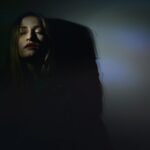Fear of the dark, known as nyctophobia, is characterized by an intense fear of night or darkness. Although nyctophobia is commonly associated with children, sometimes adults can struggle with this condition as well.
If left untreated, nyctophobia can severely limit a person’s functioning, with people staying indoors in the evenings or completely avoiding social situations that require them to be out in the dark. In this article, we’ll look at a few reasons why some adults may fear the dark while also looking at a few ways to overcome it.
Why is Darkness Scary?
There are many reasons why darkness can be scary for some people, even in adulthood. Some of them are:
-
Evolutionary and Natural Instinct
Even though it might sound odd, some fear of the dark is natural. Some researchers have hypothesized that fear of the dark is an evolutionary trait we picked up to survive and protect ourselves from predators at night. Thus, in darkness, our senses tend to be heightened and our brains are more alert, preparing us for potential threats even in the safety and comfort of our homes.
-
Childhood Experiences
Our childhood plays a key role in the development of our fears. Some fears of childhood can even resurface in adulthood, especially in times of stress. Chances are if you had a fear of the dark as a child, it might have re-emerged during stressful times in adulthood. Past experiences of a bad dream or traumatic memories related to darkness may also resurface in adulthood.
-
Threats And Uncertainty
Darkness is often associated with uncertainty and fear of the unknown. When we cannot see the environment around us clearly, it triggers feelings of tension and anxiety. Most people feel this anxiety only temporarily, but for people with nyctophobia, it can be long-lasting
-
Underlying Mental Health Conditions
Sometimes, fear of the dark can be a symptom of underlying mental health conditions.
People with Post-Traumatic Stress Disorder (PTSD), especially those who have experienced trauma in the dark, are at risk of developing nyctophobia.
Additionally, research also suggests that people with sleep disorders are more likely to suffer from nyctophobia. The anxiety and frustration associated with insomnia can create a negative association with night and darkness, perpetuating fear.
How To Overcome The Fear Of The Dark?
While fear of the dark can be incredibly distressing, especially in adulthood, there are ways one can overcome it. Some of them are:
-
Create a Sleep Routine
Create a nighttime routine that helps your mind calm before bed. This might include avoiding disturbing content before going to bed, listening to calming music, etc.
-
Get A Nightlight
If sleeping in the dark is an issue, consider getting a small nightlight that might give you just enough light to help you feel safe and fall asleep.
-
Practice Gradual Exposure
Ask a trusted friend or a family member to help you with gradual exposure to darkness. Maybe start with just looking at a dark room from afar, then practice standing in a dark room for a few seconds and keep increasing the duration as you gain more confidence
-
Practice Relaxation Techniques
Practice relaxation techniques such as deep breathing, positive visualisation, and progressive muscle relaxation with positive affirmations whenever you are about to face a stressful situation in darkness.
-
Seek Professional Help
If the fear of the dark has been significantly impacting your daily life and preventing you from participating, in daily activities, consider reaching out to a trained mental health professional, A therapist can help you find the root cause of the fear while helping you develop skills to deal with it
Conclusion:
Fear of the dark can be alarming, especially in adulthood, but it’s important to understand that some of it is a natural part of evolution, while negative past experiences and underlying mental health conditions can also play a key role in its development. However, one can deal with the fear by creating a nighttime routine and using techniques such as gradual exposure and relaxation. If the fear is too disturbing, it is advisable to seek professional help as soon as possible.
References:
- How Adults Can Overcome a Fear of the Dark | Happy Beds. (n.d.). Retrieved June 6, 2024, from https://www.happybeds.co.uk/blog/adults-can-overcome-fear-dark
- Nyctophobia (Fear of the Dark): Symptoms & Causes. (n.d.-a). Cleveland Clinic. Retrieved June 6, 2024, from https://my.clevelandclinic.org/health/diseases/22785-nyctophobia-fear-of-the-dark
- Nyctophobia (Fear of the Dark): Symptoms, Causes, & Treatments. (n.d.-b). ChoosingTherapy.Com. Retrieved June 6, 2024, from https://www.choosingtherapy.com/nyctophobia/
- Nyctophobia: Symptoms, Causes, and Treatment | Psych Central. (n.d.). Retrieved June 6, 2024, from https://psychcentral.com/health/nyctophobia#causes
- Nyctophobia: Understanding Fear of the Dark. (2017, September 29). Healthline. https://www.healthline.com/health/nyctophobia

